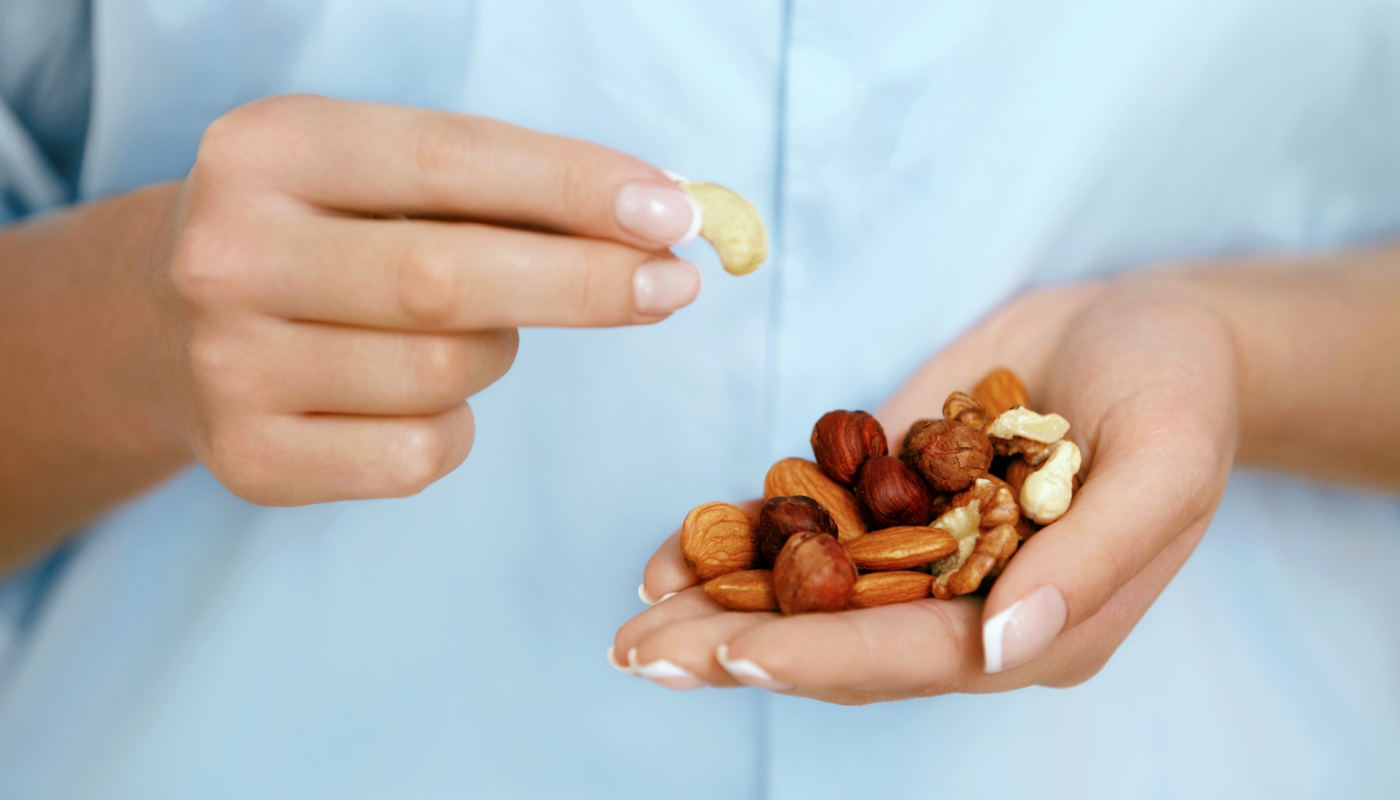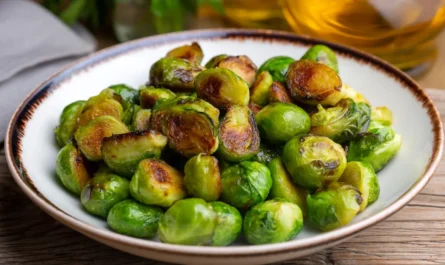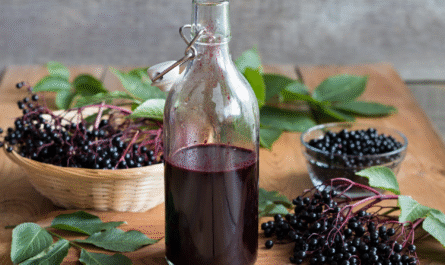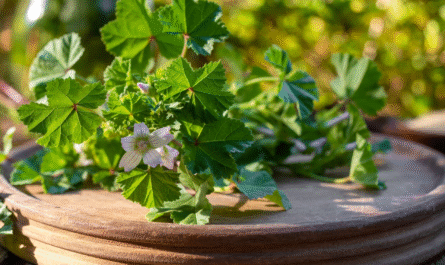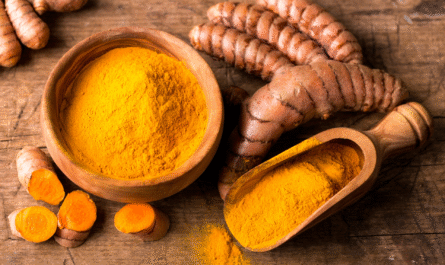Magnesium is one of the most important minerals in the human body, playing a critical role in more than 300 enzymatic reactions.
It’s involved in energy production, protein synthesis, muscle and nerve function, blood glucose control, and blood pressure regulation.
Magnesium also contributes to the structural development of bone and is essential for the synthesis of DNA, RNA, and the antioxidant glutathione.
Despite its vital role, many people don’t get enough magnesium in their diets. According to the National Institutes of Health (NIH), nearly two-thirds of Americans consume less than the recommended daily allowance (RDA) of magnesium.
For adults, the RDA is around 420 mg for men and 320 mg for women. Including magnesium-rich foods in your diet, particularly nuts and seeds, is a smart and efficient way to bridge this nutritional gap.
Here are 9 of the best nuts and seeds that are naturally high in magnesium, along with their nutritional benefits and how they can support your health.
1. Hemp Seeds
Magnesium content: 210 mg per 3 tablespoons (about 50% DV)
Hemp seeds are one of the most magnesium-rich foods you can eat. Just three tablespoons provide approximately half of the daily recommended intake.
These small, soft seeds have a mild, nutty flavor and are incredibly versatile, they can be sprinkled on salads, blended into smoothies, or mixed into oatmeal.
Hemp seeds are also packed with protein and contain all nine essential amino acids, making them a complete protein source, an unusual trait among plant-based foods.
They are rich in healthy fats, particularly omega-3 and omega-6 fatty acids, and contain significant amounts of zinc, iron, phosphorus, and B vitamins.
Beyond magnesium’s role in energy metabolism and nervous system function, the high protein and fatty acid content in hemp seeds support muscle repair, cardiovascular health, and hormone production.
2. Pumpkin Seeds
Magnesium content: 156 mg per 1 ounce (about 37% DV)
Pumpkin seeds, also known as pepitas, are nutritional powerhouses. A single ounce, approximately a small handful, delivers about 37% of your daily magnesium needs.
In addition to magnesium, pumpkin seeds offer a robust mix of protein, iron, zinc, manganese, and antioxidants like vitamin E. They are high in monounsaturated fats, particularly oleic acid, which is known to support heart health by reducing LDL cholesterol and increasing HDL cholesterol.
Pumpkin seeds also contain tryptophan, an amino acid that promotes restful sleep, and their fiber content can help support digestive health. They make a great on-the-go snack or a crunchy topping for salads and soups.
3. Chia Seeds
Magnesium content: 111 mg per 1 ounce (about 26% DV)
Chia seeds are tiny but mighty. Just one ounce, roughly two tablespoons, offers over a quarter of your daily magnesium needs.
Chia seeds are also incredibly rich in dietary fiber, with nearly 10 grams per ounce, which supports digestive health and helps maintain stable blood sugar levels.
They’re a great source of plant-based omega-3 fatty acids (especially alpha-linolenic acid), antioxidants, calcium, phosphorus, and protein.
These seeds are hydrophilic, meaning they absorb many times their weight in water. When soaked, they form a gel-like consistency, which makes them a popular ingredient in puddings and smoothies.
4. Brazil Nuts
Magnesium content: 107 mg per 1 ounce (about 25% DV)
Brazil nuts are one of the richest natural sources of selenium, but they are also excellent providers of magnesium. An ounce, usually around 6 to 8 large nuts, contains about 25% of your recommended daily magnesium intake.
These nuts contain beneficial fats, protein, fiber, and other key minerals, such as phosphorus, copper, and zinc.
While they offer numerous benefits, including antioxidant support and immune health, they should be consumed in moderation due to their very high selenium content.
Just one to two Brazil nuts per day is sufficient to meet your selenium needs.
Magnesium in Brazil nuts supports bone health, reduces inflammation, and helps regulate muscle and nerve function.
5. Sesame Seeds
Magnesium content: 95 mg per 3 tablespoons (about 23% DV)
Sesame seeds are often underestimated, but these tiny seeds are rich in essential nutrients, including magnesium. Three tablespoons provide nearly a quarter of the daily recommended intake.
They’re also a good source of calcium, iron, copper, manganese, and zinc. Sesame seeds contain lignans and phytosterols, plant compounds known for their antioxidant and anti-inflammatory properties.
Sesame seeds are commonly used in Middle Eastern and Asian cuisines and can be added to baked goods, salads, stir-fries, and tahini (a sesame seed paste used in hummus).
6. Pili Nuts
Magnesium content: 86 mg per 1 ounce (about 22% DV)
Pili nuts are a lesser-known but highly nutritious nut native to the Philippines and other tropical regions. One ounce of pili nuts provides 22% of the DV for magnesium.
These buttery, rich nuts are high in healthy fats, primarily monounsaturated fats and are an excellent source of magnesium, phosphorus, and thiamine (vitamin B1).
Thiamine is essential for carbohydrate metabolism and energy production.
Pili nuts are often sprouted or roasted and consumed as a snack or added to yogurt, granola, or nut butters. Their high fat and magnesium content make them ideal for ketogenic and low-carb diets.
7. Almonds
Magnesium content: 77 mg per 1 ounce (about 18% DV)
Almonds are one of the most commonly consumed nuts worldwide and for good reason. A single ounce (about 23 almonds) provides nearly 20% of your daily magnesium needs.
They’re also packed with vitamin E, protein, healthy fats, and fiber. Almonds contain manganese and riboflavin (vitamin B2), which are involved in energy production and antioxidant defense.
Almond flour and almond butter are also good sources of magnesium. Almonds support heart health, may aid in blood sugar regulation, and are linked to improved cholesterol levels.
8. Cashews
Magnesium content: 74 mg per 1 ounce (about 18% DV)
Cashews are creamy, mildly sweet nuts that are great for snacking and cooking. A one-ounce serving delivers about 18% of the DV for magnesium.
In addition to magnesium, cashews are a good source of iron, zinc, copper, and vitamin K.
They’re lower in fat than many other nuts, but the fats they do contain are mostly heart-healthy monounsaturated and polyunsaturated types.
Cashews may support bone health, blood sugar control, and immune function thanks to their wide range of micronutrients.
They’re also commonly used to create dairy-free milk, cheese, and cream alternatives.
9. Hazelnuts
Magnesium content: 46 mg per 1 ounce (about 11% DV)
Hazelnuts are a delicious nut often used in confectionery, but they also bring considerable nutritional benefits. One ounce, around 21 whole nuts, provides 11% of the DV for magnesium.
They’re particularly rich in vitamin E, manganese, copper, and healthy fats.
Hazelnuts are also high in antioxidants, including phenolic compounds, which help reduce inflammation and protect against oxidative stress.
Hazelnuts have been associated with improved cardiovascular health, better cholesterol profiles, and enhanced brain function.
Why Magnesium Matters
Magnesium is a key player in numerous physiological processes. Its benefits include:
1. Bone Health
Around 60% of the body’s magnesium is stored in the bones. It works alongside calcium and vitamin D to maintain bone density.
2. Heart Health
Magnesium supports a steady heartbeat and helps regulate blood pressure. Deficiency has been linked to a higher risk of cardiovascular disease.
3. Muscle and Nerve Function
It helps muscles relax after contraction and supports the transmission of nerve signals.
4. Blood Sugar Control
Magnesium helps manage insulin action and glucose metabolism, reducing the risk of type 2 diabetes.
5. Mood and Cognitive Function
Low magnesium levels are associated with increased risk of depression and anxiety.
Daily Magnesium Needs by Age and Sex
Age Group Male (mg/day) Female (mg/day) Birth to 6 months 30 (AI) 30 (AI) 7–12 months 75 (AI) 75 (AI) 1–3 years 80 80 4–8 years 130 130 9–13 years 240 240 14–18 years 410 360 19–30 years 400 310 31+ years 420 320
Conclusion
Magnesium plays a central role in maintaining health and preventing chronic diseases. Nuts and seeds are not only convenient and tasty but also excellent sources of this essential mineral.
Hemp seeds, pumpkin seeds, chia seeds, Brazil nuts, and sesame seeds top the list for magnesium density, but almonds, cashews, hazelnuts, and pili nuts also provide substantial amounts.
Incorporating a mix of these into your diet can help you meet your daily magnesium needs and enjoy additional benefits like improved heart health, better digestion, and enhanced energy levels.
Always aim for variety to get a wide range of nutrients, and consult a healthcare provider before using supplements, especially if you suspect a deficiency.
Eating a handful of nuts or seeds daily isn’t just a healthy habit—it’s a strategic step toward better health.

